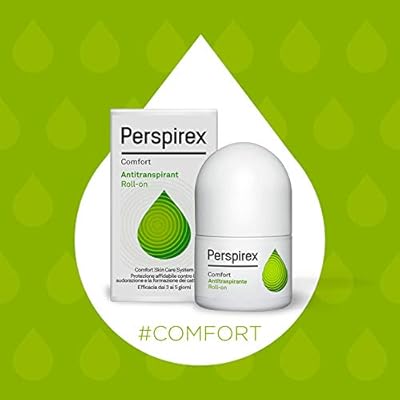Strong antiperspirant deodorants have become a vital component of personal hygiene for many individuals, offering an effective solution to the challenges of excessive sweating and body odor. These products are designed not just to mask odors but to control and reduce sweat production, providing long-lasting protection that keeps users feeling fresh and confident throughout the day. As more people seek reliable methods to manage perspiration, the demand for powerful antiperspirants has grown, making these products a significant part of the personal care market. Understanding how these deodorants work, their benefits, and potential concerns can help consumers make informed choices that best suit their needs.
The primary function of strong antiperspirant deodorants is to minimize sweat production, which in turn helps to control body odor. These products typically contain aluminum-based compounds that temporarily block the sweat glands, reducing the amount of sweat released to the skin’s surface. This reduction in sweat not only helps keep the skin dry but also limits the conditions that allow odor-causing bacteria to thrive. For individuals who experience hyperhidrosis, a condition characterized by excessive sweating, these deodorants can be particularly beneficial. By effectively managing perspiration, strong antiperspirants allow users to go about their daily activities without the discomfort or embarrassment that excessive sweating can cause.
One of the most common concerns surrounding the use of strong antiperspirant deodorants is the potential for skin irritation. Because these products contain potent ingredients designed to block sweat glands, some users may experience sensitivity or irritation, particularly those with sensitive skin. To address this issue, many manufacturers have developed formulations that balance strength with gentleness, incorporating soothing agents like aloe vera or chamomile. These ingredients help to calm the skin while still providing the robust protection needed to control sweat. Consumers are advised to patch-test new products on a small area of skin before full application to ensure they do not experience any adverse reactions.
Another important aspect of strong antiperspirant deodorants is their impact on clothing. Some users have reported that these products can leave white marks, stains, or residue on fabrics, especially when applied in excess or without allowing the product to fully absorb. To mitigate this issue, many modern antiperspirants are designed with clear or invisible formulas that dry quickly and minimize residue. These innovations help to reduce the risk of staining, ensuring that clothes remain clean and fresh throughout the day. To maximize the effectiveness of these products and avoid any potential issues with clothing, it is recommended that users apply antiperspirants at night before bed, allowing ample time for the product to be absorbed.

The psychological benefits of using deodorant ampuh perspirex should not be overlooked. In both social and professional settings, the fear of visible sweat stains or unpleasant odors can be a significant source of anxiety. This worry can affect self-confidence and lead to discomfort in interactions with others. By providing reliable and long-lasting protection against sweat and odor, strong antiperspirants empower individuals to feel more confident and secure in their daily lives. Whether preparing for a presentation at work, attending a social event, or simply going about everyday tasks, knowing that perspiration is under control allows people to focus on their activities without distraction.
While strong antiperspirant deodorants offer numerous benefits, it is important for consumers to be aware of potential risks associated with long-term use. Some studies have raised concerns about the safety of aluminum compounds used in antiperspirants, suggesting a possible link to health issues such as breast cancer or Alzheimer’s disease. However, extensive research conducted by organizations such as the American Cancer Society and the Alzheimer’s Association has found no conclusive evidence to support these claims. Nonetheless, individuals who are concerned about the ingredients in their antiperspirants may opt for natural alternatives, though these may not provide the same level of sweat control as traditional products.
